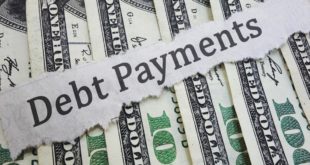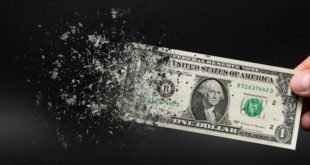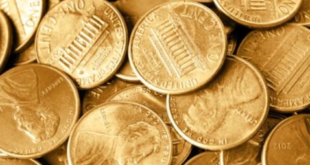More than ninety central banks worldwide are increasing interest rates. Bloomberg predicts that by mid-2023, the global policy rate, calculated as the average of major central banks’ reference rates weighted by GDP, will reach 5.5%. Next year, the federal funds rate is projected to reach 5.15 percent. Raising interest rates is a necessary but insufficient measure to combat inflation. To reduce inflation to 2%, central banks must significantly reduce their balance...
Read More »Economic Growth Requires Savings, Not Money Pumping
The U.S. personal savings rate eased in September to 3.1 percent from 3.4 percent in August. In September 2021 the savings rate stood at 7.9 percent. By popular thinking, a decline in the savings rate during an economic slowdown is regarded as supporting economic activity. In the National Income and Product Accounts (NIPA), savings are established as the difference between disposable money income and monetary outlays. Disposable income is defined as all personal...
Read More »Father Time vs. Central Bankers
An excellent new book from Edward Chancellor, The Price of Time, sets out to explain both the theory and history of interest rates across five millennia and countless cultures. The theory is frequently bungled by economists; the history is frequently glossed over by historians. But thankfully Mr. Chancellor is up to the task. He is an excellent and engaging writer, owing presumably to his long career as a financial journalist. We need more books like this....
Read More »And So It Begins: Digital Currency Becomes Possible in our Future
In mid-November, while the whole world was focused on the Ukraine crisis, the US midterms or whatever other “big story” the media decided was more important, a truly momentous shift took place in the global financial system. It might seem like a small step on the surface, but it has the potential to bring about a real and possibly irreversible sea change in the way we use money; or better said, the way it uses us. As Reuters reported on the 15th of November, “Global...
Read More »Tax Cuts Do Not Cause Inflation. Printing Does.
The narrative to attack any tax cut and defend any increase in government size is reaching feverish levels. However, we must continue to remind citizens that constantly bloating government spending and increasing the size of monetary interventions are some of the causes of the widespread impoverishment of the middle class. Constantly increasing taxes and diminishing the purchasing power of the currency is wiping out the middle class in most developed nations....
Read More »The “Barbarous Relic” Helped Enable a World More Civilized than Today’s
One of history’s greatest ironies is that gold detractors refer to the metal as the barbarous relic. In fact, the abandonment of gold has put civilization as we know it at risk of extinction. The gold coin standard that had served Western economies so brilliantly throughout most of the nineteenth century hit a brick wall in 1914 and was never able to recover, or so the story goes. As the Great War began, Europe turned from prosperity to destruction, or more...
Read More »Mises’s Critiques of Social Darwinism and of the Concept of Class Struggle
In his 1922 book, Gemeinwirtschaft, Ludwig von Mises unmasks the intellectual distortion that is social Darwinism. Based on determining the dynamics of socialization through the principle of the division of labor, Mises shows that society is cooperative; that peace, not war, is the father of human progress. Socialization Mises believes socialization proceeds through expansion and deepening. Through societal expansion, people are increasingly drawn into the system of...
Read More »The World Needs More Energy and Less Energy Regulation
Energy is a highly regulated industry across the world. There is less debate about the need for government control when it comes to the oil and gas sector. The arguments that most people accept for government intervention in energy, whether in the name of energy access, national security, or climate change mitigation, all share the same general premise: that energy is too important to be left to the whims of the free market. But this year, the world has been thrust...
Read More »The Corporate Fairy Tale Is Dying as Economic Reality Sets In
At least since 2008, the financial world has been in a financial spiral caused by central banks’ growing monetary impression. As a consequence, key economic concepts (e.g., that business cycles are caused by credit expansion, and higher prices by monetary expansion) started to be considered just “old ideas” and their defenders prophets of the apocalypse. Some economists, especially the modern monetary theory (MMT) defenders, attempted to substitute these ideas with...
Read More »The G7 Cap on Russian Oil Is a Subsidy to China
There are many mistakes in the G7 agreement to put a cap on Russian oil. The first one is that it does not hurt Russia at all. The agreed cap, at $60 a barrel, is higher than the current Urals price, above the five-year average of the quoted price and higher than Rosneft’s average netback price. According to Reuters, “the G7 price cap will allow non-EU countries to continue importing seaborne Russian crude oil, but it will prohibit shipping, insurance, and...
Read More » Swiss Economicblogs.org
Swiss Economicblogs.org










